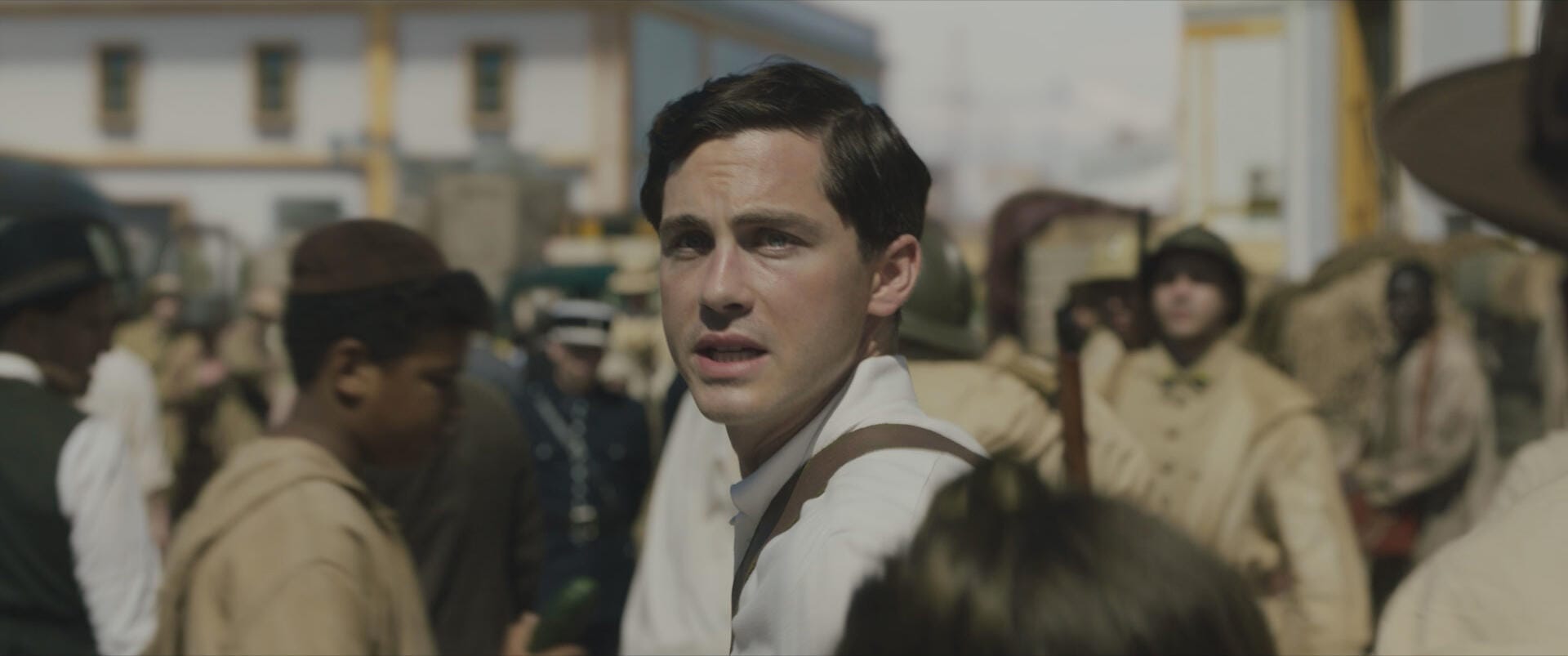'We Were the Lucky Ones' Tells a Story of Optimism & Hope in the Face of Evil

Stories about the Holocaust are important to tell. Not just because of the familiar adage that those who don’t remember history are condemned to repeat it (something that is clearly happening currently in many parts of the world). But also because we must honor the lives that were lost and the lives of those who survived. The generation above me lived through World War II. But for the generation below me, the war and all its atrocities are something they learn about in school. But importance alone doesn’t make a great series. To truly have an impact, the series must be gripping and entertaining. It must draw the viewer in with its story arcs and create characters we can connect with.
We Were the Lucky Ones, the eight-episode Hulu series, which premieres with the first three episodes on March 28, 2024, does precisely that. Based on the 2017 book of the same name by Georgia Hunter, the series tells the true story of Hunter’s grandfather, Addy (Logan Lerman), and his family during World War II. Hunter, who also serves as co-executive producer on the series, grew up in Massachusetts, never knowing what her ancestors had endured until she was a teenager. It is an exquisite series. Emotionally moving. Impeccably acted. Deftly directed. At times utterly devastating, but always brimming with hope.
The series begins in 1939 in Radom, Poland. Addy, a composer and pianist, has come home from Paris to celebrate Passover with his parents Sol (Lior Ashkenazi) and Nechuma (Robin Weigert), his sister Halina (Joey King) and Mila (Hadas Yaron) and his brother Ganek (Henry Lloyd-Hughes) and Jakob (Amit Rahav). The Second World War is near, but the threat of it and the horrific violence that the Jewish people will soon face is not yet real. The most significant impact they currently face is that some customers are no longer coming to Sol and Nechuma’s tailor shop.

Addy (Logan Lerman) in We Were the Lucky Ones
What follows is the Kurc family’s heart-wrenching story of survival. The war takes them throughout Europe, Brazil and Morocco. Babies are born. Romances blossom. People get married. They struggle to maintain some semblance of normalcy in a world that has gone mad. They narrowly escape death. They are imprisoned. They lose touch with one another. Letters go unanswered. Communication ceases. They don’t know who has died and who has lived.
The series lays bare the war’s atrocities. Jewish people were forced out of their own homes. Their communities were destroyed, and piles of dead bodies were left in the street. They endured grueling work in labor camps. They had to dig their own graves and hide their children. (In one particularly haunting scene, a child who is sent to live in hiding with a Polish family is returned because she looks “too Jewish”). We Were the Lucky Ones also doesn’t shy away from the casual cruelties. Those who didn’t help. Those who looked the other way. The woman wants her package double-wrapped because she doesn’t want the “scent of burning Jews to ruin my lace.” Addy’s friend Caroline (Nicole Brydon Bloom) is disgusted by the apathy that surrounds her. “Everyone says they want to help,” she says in one of the many lines that would be applicable today. “They would just prefer it to be at a distance.”
Although the series’ events occurred over 80 years ago, they could serve as a wake-up call for today. “It’s just too hard to imagine that it’s true what they are doing to us,” Helena says when she hears about the concentration camps. I thought I knew something about human beings, but I know nothing.”
Halina and her boyfriend Adam (Sam Woolf), who is a master forger, must deny their faith to escape the Nazis. “They have no idea what a Jew looks like, which is why they make us wear the yellow star,” Adam says before telling everyone that from now on, they tell no one that they are Jewish. “It sickens me that you have mixed up my husband with these filthy Jews,” one of the characters says in a later episode in an attempt to rescue a loved one.
The Kurc family took risks to live through the Holocaust. They never stopped fighting for their survival. Amazingly, they never lost hope. “Faith is a choice. An act of will,” Ganek’s wife Herta (Moran Rosenblatt) says. And what does it mean to be lucky in this context? Almost everything about their lives has been taken from them. “You say I’m lucky, but maybe luck is relative,” Halina says. The series wrestles with why some people survived the Holocaust and others didn’t. How do you manage the guilt that you were spared? “The only thing I know for certain is there is no reason I should be alive,” Jakob’s wife Bella (Eva Feller) says.
We Were the Lucky Ones is powerful and cathartic. The family’s sprawling story never becomes unwieldy. That’s due not only to the amazing story of the Kurc family and the strong script and smart direction but also to a solid cast that delivers performances that truly resonate. The publicity for the series would have you believe the only stars are Lerman and King, who are fantastic in their roles. But the series thrives because all the Kurc siblings and their stories are given their due.
Two of Addy’s musical compositions are featured in the series. His descendants and his legacy live on. And for that, we are all lucky.
We Were the Lucky Ones debuts on Hulu on Thursday, March 28, with three episodes, followed by one episode a week until the beginning of May 2024.




